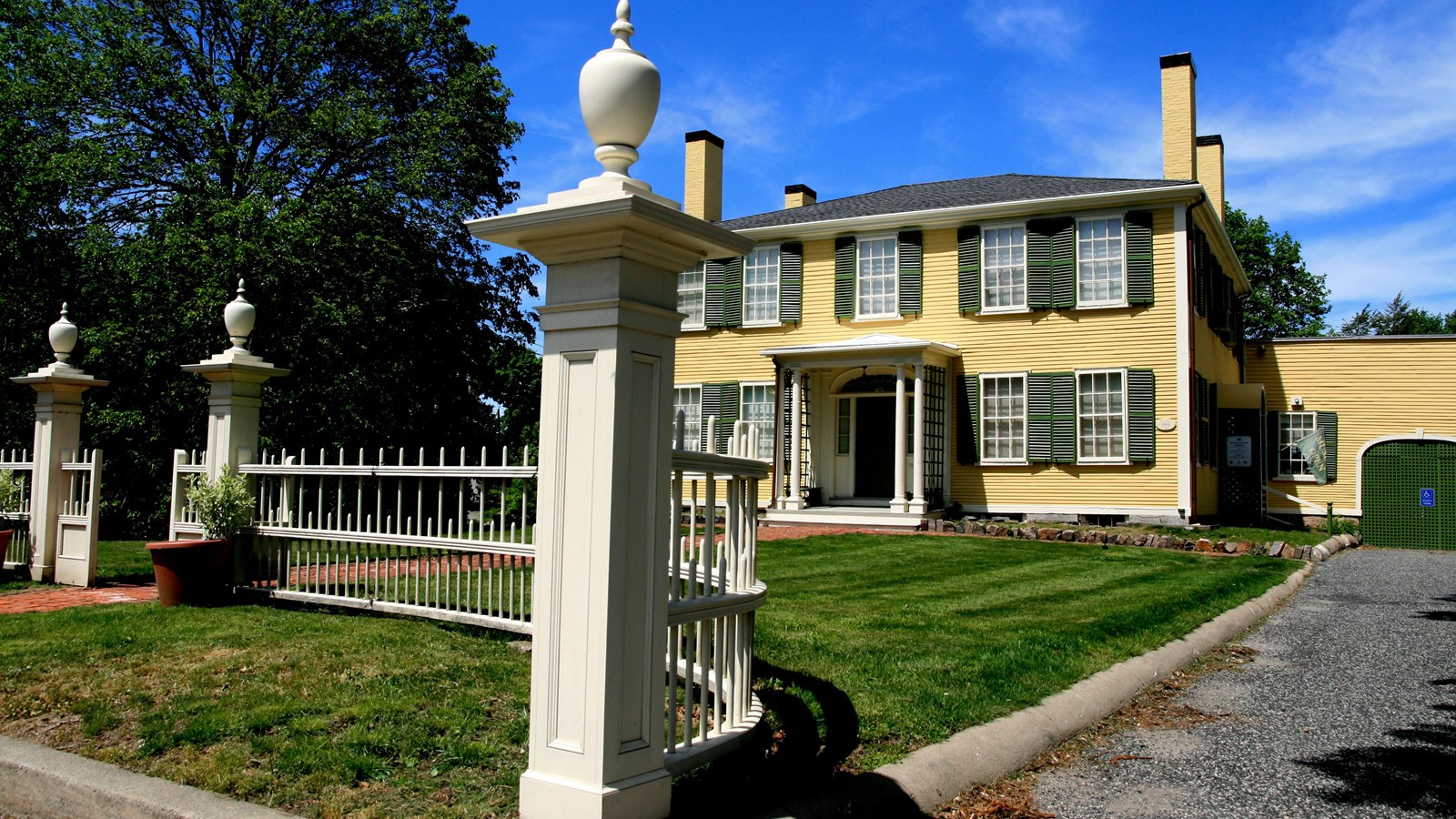Last updated: August 17, 2020
Place
Massachusetts: Jackson Homestead

Photo by Historic Newton, CC BY-SA 4.0, https://commons.wikimedia.org/w/index.php?curid=63312559
The Jackson Homestead is a well-preserved Federal-style house in Newton, Massachusetts. Corroborating written accounts and oral tradition provide evidence that the house served as a station on the Underground Railroad.
Timothy Jackson (1756-1814) built the family homestead in 1809 after serving in the Revolutionary War and returning to Newton to farm his family's land. His son William Jackson (1783-1855) moved to the house in 1820 and established a soap and candle factory on the property. He married Mary Bennett (1792-1867) and the couple had twelve children.
Mary supported William throughout his career as a member of the Massachusetts General Court from 1832 to 1833, a member of the US Congress, and as a general agent for the Boston and Worcester Railroad. Due largely to William’s influence, the railroad line was routed through Newton bringing important trade. Locally, he headed the Temperance Society, was founder of the Newton Savings Bank, the Eliot Church, and the Newton Female Academy.
William, Mary, and three of their daughters were active abolitionists. They offered their home as a safe haven on the Underground Railroad. The family’s role in the Underground Railroad was recounted by daughter Ellen, who recalled a night when William Bowditch of Brookline brought a freedom seeker to the Jackson Homestead, where he stayed until he escaped to freedom. Ellen wrote:
"the Homestead's doors stood ever open with a welcome to any of the workers against slavery for as often and as long as suited their convenience or pleasure. The Homestead was one of the Stations of the ‘Under Ground Rail Road’ which was continually helping runaway Slaves from the South to Canada. One night between 12 and one o'clock, I well remember father was awakened by pebbles thrown against his window. He rose asked what was wanted? Bowditch replied it was he, with a runaway slave whom he wished father to hide till morning, and then help him on his way to Canada, for his master was in Boston looking for him. Father took him in and next morning carried him 15 miles to a Station where he could take a car for Canada. He could not have safely left by any Boston Station."
After William’s death in 1855, Mary and her daughters continued to harbor freedom seekers up through the Civil War. In 1865, Ellen helped establish the Freedman's Aid Society in Newton and served as its President until her death in 1902. Contributions of bedding, clothing, and books sent to the Black universities of Hampton and Tuskegee Institutes are recorded in the Society's minute book. In 1906, after the death of the last surviving daughter Caroline, William and Mary’s descendants refurbished and subsequently occupied the house until 1932, when it was rented.
Further record of freedom seekers harbored at the Homestead was based on an interview with William Jackson's granddaughter, Louise Jackson Keith, who was one of the last Jackson descendants to live at the Jackson Homestead before it was given to the City of Newton in 1949. The Newton History Museum was established here in 1950 and it offers a wide range of public programs and exhibitions including interpretive ongoing and annual programs on the Underground Railroad and abolition.
The Jackson Homestead is located at 527 Washington St., in Newton, Massachusetts. It was listed on the National Register of Historic Places in 1973. The house is now the home of the Newton History Museum and is open to the public.
